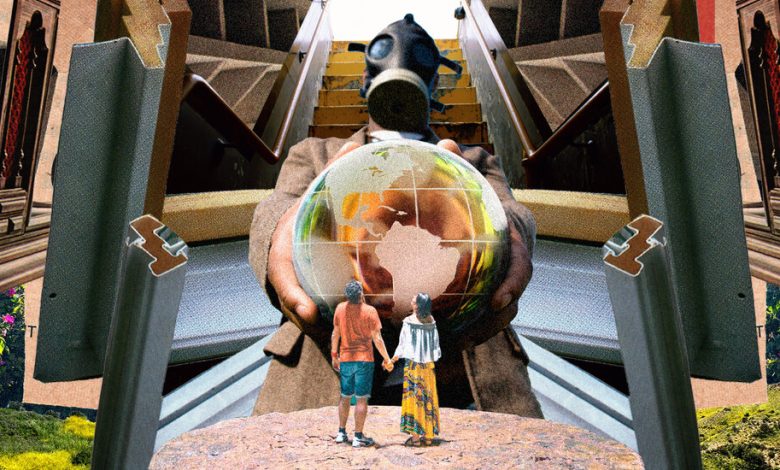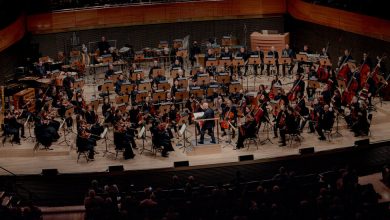When Society Gets You Down, Build a New One

THE NEW NATURALS, by Gabriel Bump
Given the size of the thing it indicts — not only America, but the entirety of modern society — it’s a somewhat spectacular achievement that Gabriel Bump’s second novel, “The New Naturals,” feels as fun as it does.
To be clear, there is a real sadness that permeates so much of Bump’s follow-up to his 2020 debut, “Everywhere You Don’t Belong.” It is in many ways a story about the strange kind of hope that sprouts from hopelessness. The characters in this novel are all done believing any of this is sustainable: capitalism, politics, the climate, the polite fiction of race relations. They want for a new way of living, a utopia that’ll survive the inevitable collapse.
So they create one, in an underground bunker in western Massachusetts, with funding from a flaky billionaire. It doesn’t go particularly well.
The novel — sharp, witty even in some of its darkest moments — opens with the back story of Rio and Gibraltar, Black academics in Boston expecting their first child. They spend their nights dreaming of something better. Rio, in particular, is adamant: “She’d talk about a perfect world until her powerful voice turned into a mumble, until she stopped altogether and snored just before sunrise.”
But after the couple’s newborn succumbs to illness — an illness their doctor at first dismisses as nothing to worry about — Rio and Gibraltar go from dreaming of a better world to actively trying to build one. They pester their contacts for help, and eventually catch the eye of an eccentric (read: rich and bored) billionaire who decides to fund their enterprise, the future residents of which they christen the New Naturals.
From there, Bump introduces a varied cast of characters whose own disillusionment will, in one way or another, bring them within the orbit of this place. There’s Sojourner, a journalist fed up with both her job and her partner; Bounce, a broken-down former soccer phenom; Elting and Buchanan, who wander aimlessly around Chicago until the cops beat and arrest them for making the nice families nearby nervous. Bump has a real talent for describing how it feels to feel too much, to be hobbled by the bigness and many-ness of all that’s unjust and failing in the world.
This sort of thing could get real dour real quick. Fortunately, Bump has a sense of humor, and makes good use of it. There are slivers of Denis Johnson here, especially in the dialogue, which often recalls the hospital scene from “Jesus’ Son”: people speaking through and around one another, the result uproarious, addictive and just removed from how most human beings actually talk. It’s delightful.
There are a couple of frustrating aspects to “The New Naturals.” The first is stylistic — Bump is an excellent writer, but he relies on repetition a little too often. This comes in many forms: a paragraph in which almost every sentence begins with the same wording, or dialogue composed of echoes, either within the same speech pattern (“‘OK,’ Dustin said. ‘I’ll go. Fine. Glad you’re OK. I’ll go. Fine. OK’”) or with two or more characters bouncing slight variations of the same phrasing off each other.
Individually, none of these instances are badly done, but too frequently the repetition functions as a kind of shortcut, a quick way to heighten the tension or emotional stakes of a scene. By the time a moment arrives when the construction would otherwise work well — when, for example, Sojourner finally verbalizes her vision of the world’s dystopian trajectory: “There will be only work. And stupid work. Despairing work. Work and sleep. Dull sleep. Lifeless sleep. I feel it now, most days, it feels like a hundred years from now is standing on my chest and we’re already in the horrible, artless future” — diminishing returns have already begun to kick in.
The other issue is pacing — or rather, the relationship between pacing and depth. Virtually every character in this novel is incredibly compelling. Rio and Gibraltar feel especially alive, in large part because of how well Bump renders the small contours of their love, even as their utopian dream spirals out of control. But the focus shifts from one set of characters to the next too haphazardly, and not all the narrative threads are reconciled as convincingly as one might hope.
There is no sense of consistent pacing throughout the novel, which isn’t necessarily a bad thing. Bump could have spent pages and pages describing the construction of the New Naturals’ underground utopia, for example; instead he does it in a few sentences, and the novel is almost certainly better for it. But that swiftness doesn’t always play well with the transitions from one character or group of characters to the next. The result is a looming negative space of sorts. It’s hard not to wonder about a version of this story that focused more exclusively on Rio and Gibraltar, for example, or one that spent more time with each of the characters and tied their stories together in a less halting way. It’s a rare complaint that a novel should have been longer, but here we are.
Regardless, “The New Naturals” homes in on perhaps the most daunting anxiety of modern life: the sense that some load-bearing beam is about to cave, and there’s only a foggy, terrifying guess as to what comes next.
THE NEW NATURALS | By Gabriel Bump | Algonquin | 295 pp. | $27




